News
Year End Review 2019 – Department of School Education
In pursuance Prime Minister’s vision for ‘Transforming India’, Ministry of Human Resource Development took a leap forward in transforming education sector with the motto of “सबकोशिक्षा, अच्छीशिक्षा ”(Education for All, Quality Education).
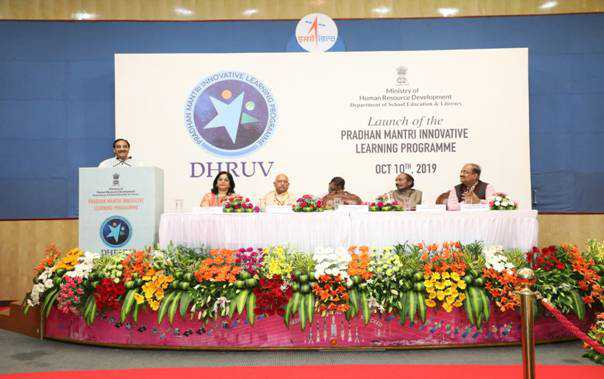
In pursuance Prime Minister's vision for ‘Transforming India’, Ministry of Human Resource Development took a leap forward in transforming education sector with the motto of “सबकोशिक्षा, अच्छीशिक्षा ”(Education for All, Quality Education).
In the year of 2019 Dr K. Kasturirangan Committee submitted the Draft National Education Policy to Union HRD Minister Shri Ramesh Pokhriyal ‘Nishank’. The Government of India had initiated the process of formulating a New Education Policy to meet the changing dynamics of the requirements of the population with regard to quality education, innovation and research, aiming to make India a knowledge superpower by equipping its students with the necessary skills and knowledge and to eliminate the shortage of manpower in science, technology, academics and industry. MHRD has launched Pradhan Mantri Innovative Learning Program (DHRUV) to identify and encourage talented children to enrich their skills and knowledge and also launched NISHTHA – National Initiative for School Heads’ and Teachers’ Holistic Advancement to improve learning outcomes at the elementary level through an Integrated Teacher Training Programme. Beside this, MHRD launched several new schemes in Higher Education Department to boost research & Innovation culture in the country. Department of Higher Education of HRD Ministry has finalized and released a five-year vision plan named Education Quality Upgradation and Inclusion Programme (EQUIP). SWAYAM 2.0, Deeksharambh andPARAMARSHare other major schemes of Department of Higher Education launched in 2019.
In the year of 2019, Ministry of HRD has actively participated in various nationwide campaigns like Ek Bharat Shreshtha Bharat (EBSB), Fit India Campaign, 70th anniversary of Constitution Day, 150th Birth Anniversary of Mahatma Gandhi among others. In order to preserve environment some campaigns have been initiated by MHRD. Save water and One Student One Tree are major successful campaigns of MHRD.
Major Achievements of Department of School Education & Literacy :
NISHTHA – National Initiative for School Heads’ and Teachers’ Holistic Advancement :
A National Mission to improve learning outcomes at the elementary level through an Integrated Teacher Training Programme called NISHTHA – National Initiative for School Heads’ and Teachers’ Holistic Advancement has been launched on 21st August, 2019. This integrated programme aims to build the capacities of around 42 lakh teachers and Heads of Schools, faculty members of SCERTs and DIETs and Block Resource Coordinators and Cluster Resource Coordinators.
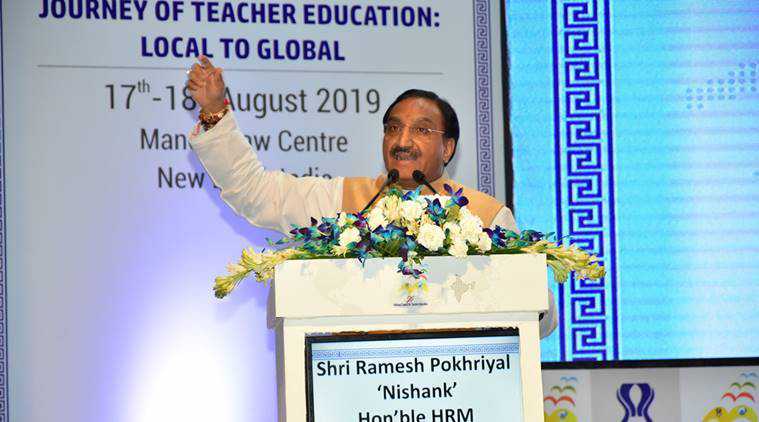
This training programme has been included as one of the two transformative ideas from Department for the 100 days programme of the Government. The initiative is first of its kind wherein standardized training modules are developed at national level for all States and UTs. However, States and UTs can contextualize the training modules and use their own material and resource persons also, keeping in view the core topics and expected outcomes of NISHTHA.
The Vice President of India, Shri M. Venkaiah Naidu gave the DHRUV batches to all the 60 students selected under DHRUV programmehave been broadly chosen from classes 9 to 12, from all schools including government and private.
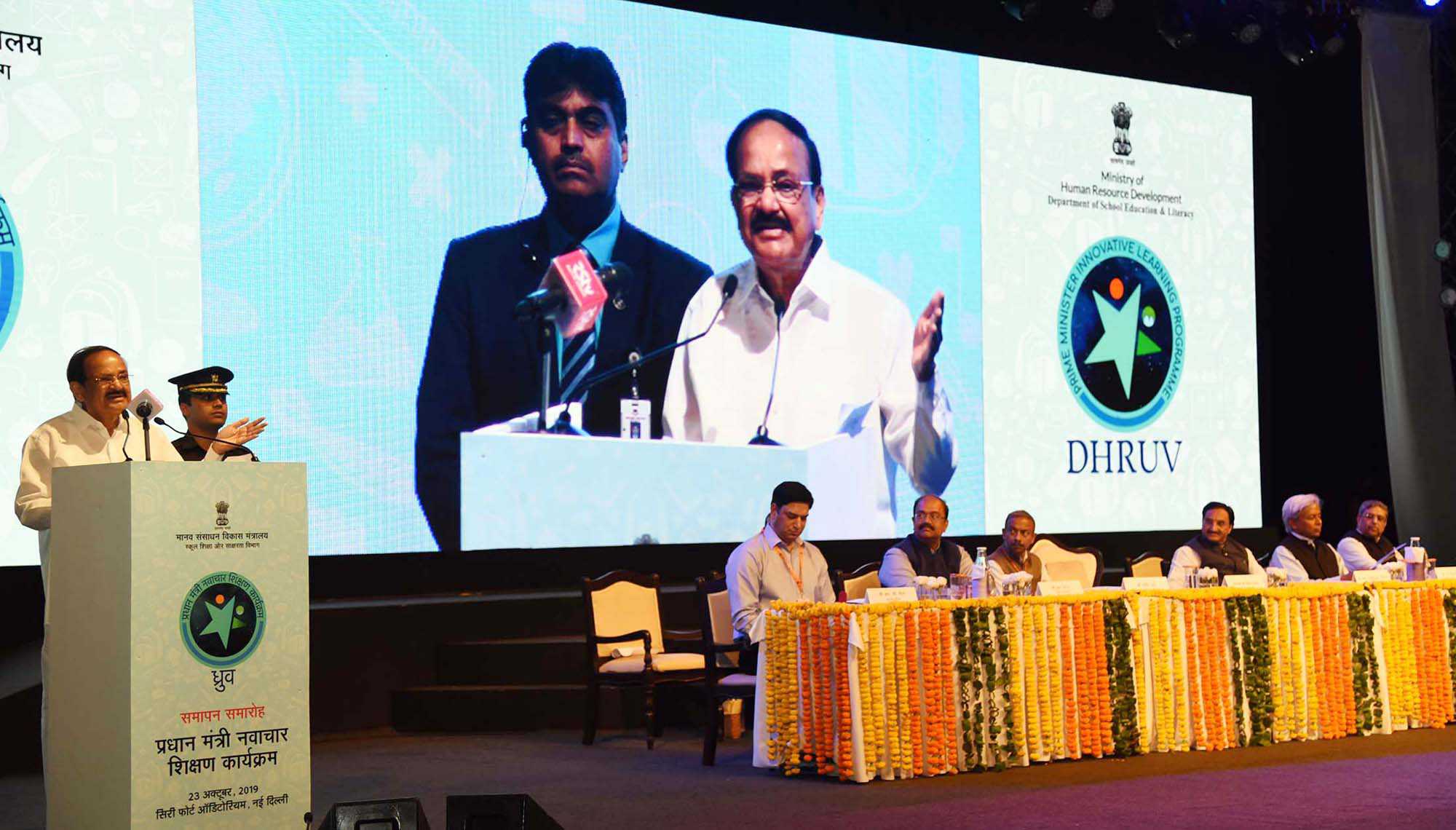
The students will both shine through their achievements and light a path for others to follow.
Union HRD Minister launches Integrated Online junction for School Education ‘Shagun’ :
Union Human Resource Development Minister Shri Ramesh Pokhriyal ‘Nishank’ launched one of world’s largest Integrated Online Junction for – School Education ‘Shagun’ in New Delhi on 28th August 2019. School Education Shagun (URL: htpp://shagun.govt.in/) is an over-arching initiative to improve school education system by creating a junction for all online portals and websites relating to various activities of the Department of School Education and Literacy in the Government of India and all States and Union Territories.
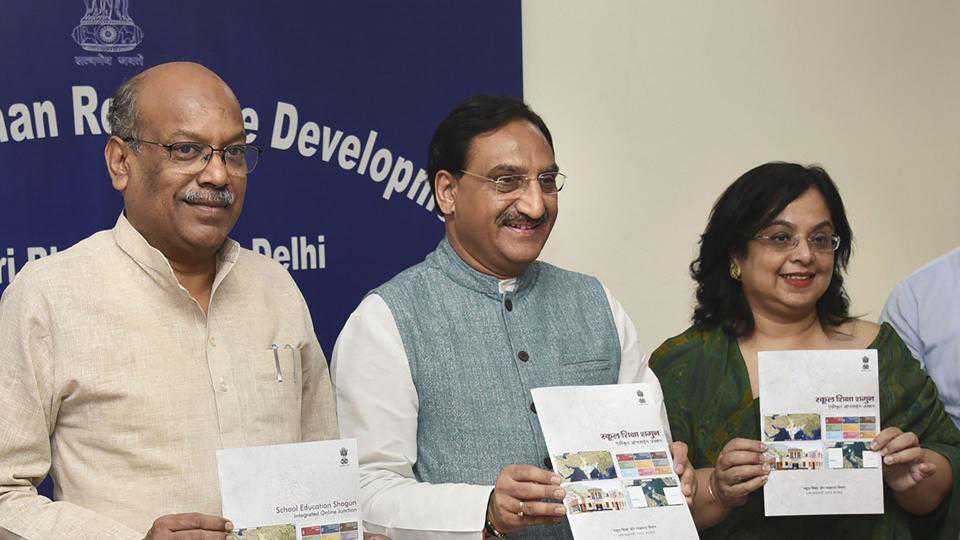
1200 KendriyaVidyalayas, 600 NavodayaVidyalayas, 18000 other CBSE affiliated schools, 30 SCERTs, 19000 organisations affiliated with NTCE among others are integrated with Shagun. Report cards of 15 lakh schools all over the country will be available on the newly created junction. The portal seeks to connect approximately 92 lakh teachers and 26 crore students.The website provides a very robust feedback mechanism. Common people can directly give their feedback about schools which will further increase the public participation and will ensure accountability and transparency.
President presents National Awards to 46 teachers from across the country for their exceptional contribution :
The purpose of National Awards to Teachers is to celebrate the unique contribution of some of the finest teachers in the country and to honor those teachers who through their commitment and industry have not only improved the quality of school education but also enriched the lives of their students.
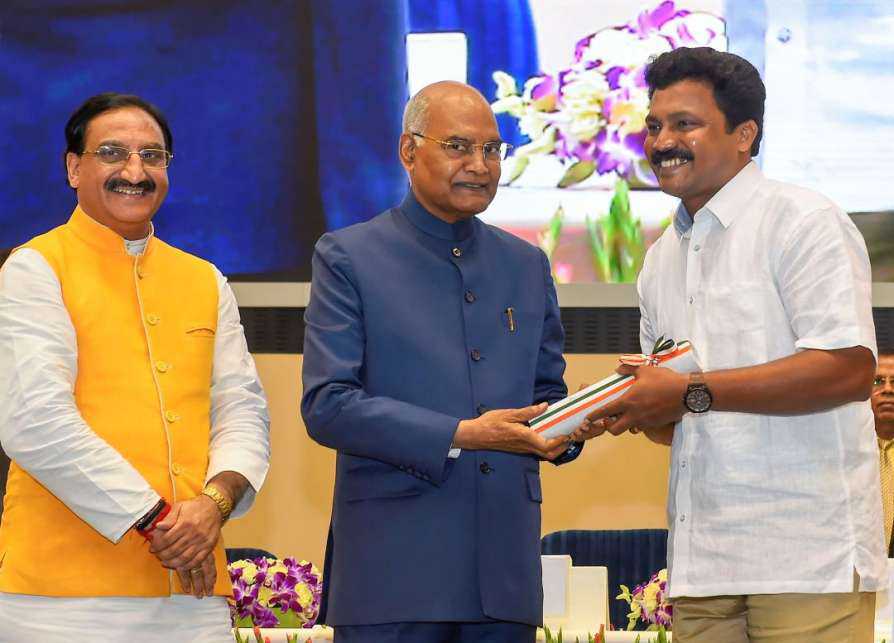
This year the online self nomination process followed by 3 tier selection process at District, State and National level has been completed. The Independent National Jury recommended name of 46 teachers. The award carries a Silver Medal, Certificate and Rs. 50,000/- as award money.
PM interacts with students, teachers and parents at “Pariksha Pe Charcha 2.0” :
The Prime Minister, Shri Narendra Modi, interacted with students, teachers and parents, as part of Pariksha Pe Charcha 2.0 at Talkatora Stadium, New Delhi on 29th January 2019. The interaction, which lasted for over ninety minutes, saw students, teachers and parents relax, laugh, and repeatedly applaud the Prime Minister’s observations, which included a touch of humour and wit.Students from across the country, and also Indian students residing abroad, participated in the event.
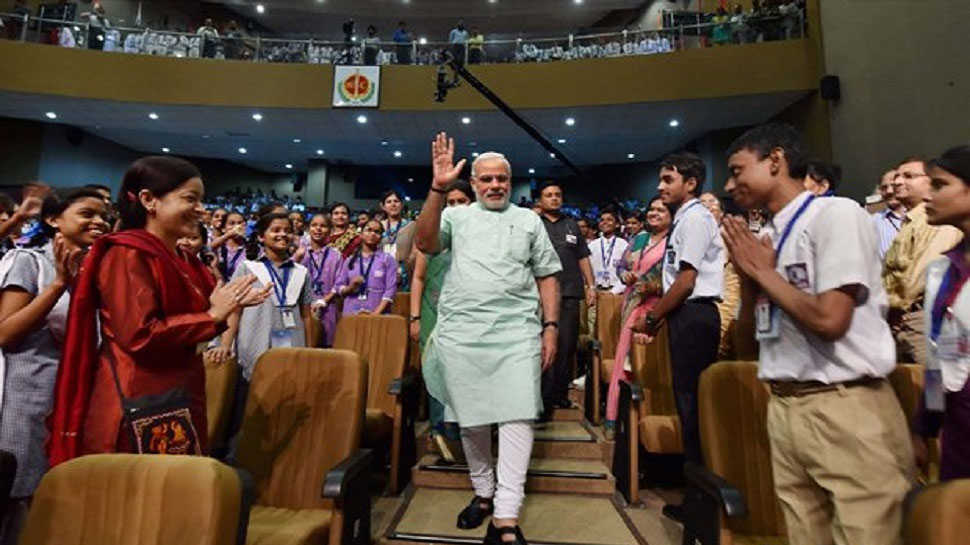
National Workshop of HRD Ministry on Social Media Outreach & Communication :
Union Human Resource Development Minister Shri Ramesh Pokhriyal ‘Nishank’ inaugurated the 'Social Media Outreach & Communication: National Workshop on Management and Best Practices'organised by Ministry of HRD for various educational institutions and organisations in New Delhi on 27th December.Nearly 200 Social Media Champions from various Centrally funded educational institutions participated in the workshop. The purpose of the workshop is to bring the social media communication and outreach of various institutions under one umbrella and to open a channel for day to day communication and dialogue with these institutions.
Unified District Information System for Education Plus (UDISE+) :
To ensure quality, credibility and timely availability of information from all the schools in the country, the revamped UDISE + has been launched by the Department. The GIS based mapping portal gives information about location of more than 15 lakh schools in the country along with some salient highlights. The Data Analytics portal gives percent information about the aggregate position of the school.
Digital Infrastructure for Knowledge Sharing (DIKSHA) 2.0 :
Diksha Portal was launched in 2017 for providing digital platform to teachers giving them an opportunity to learn and train themselves and connect with teacher community. This initiative has been taken forward to enhance coverage and improve the quality of e-content for teachers…All States and UTs and also KVs and NVs have been asked to involve proactively in curating contents for DIKSHA. NCERT, CBSE are also actively involved in taking the DIKSHA initiative forward. Till date, more than 67000 of content pieces have been hosted on DIKSHA and more than 10.5 crore scans have been affected.
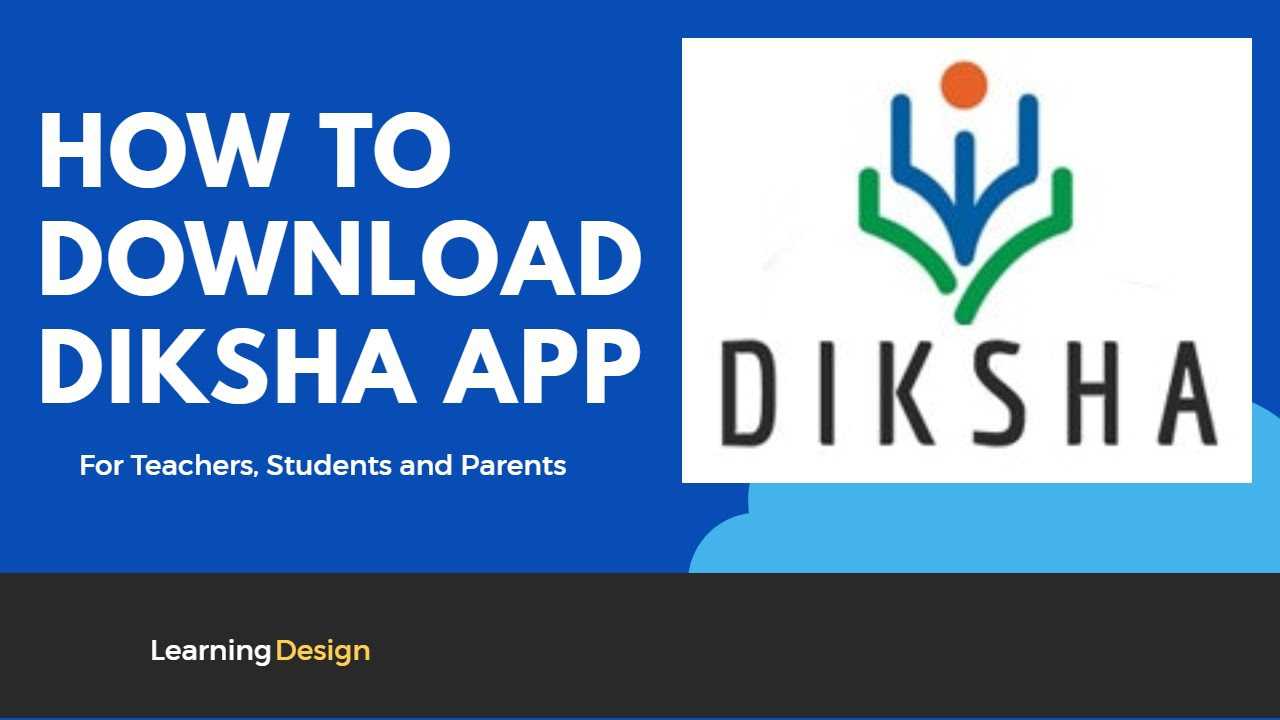
Performance Grading Index (PGI) :
To objectively evaluate the performance of the school education system in the States/UTs, MHRD has designed a 70 indicators based matrix called Performance Grading Index (PGI) to grade the States and UTs.
Operation Digital Board (ODB) :
The aim is to provide by March 2023, two smart classrooms for every Secondary/Senior Secondary schools in1,01,967 Government and 42,917 Aided schools in all States/UTs and 1704 KVs and NVs making a total of 1,46,588 schools. One-time amount of Rs.2.40 lakhs will be required to procure hardware, including accessories and a recurring cost of Rs.3.00 lakhs (for 5 years) for electricity charges, internet connection etc. The total budgetary requirement will be Rs. 8782.55 crore (Rs. 5671.50 crore required by the DoSEL, MHRD and rest Rs. 3111.05 crore by States) spread over a period from April 2020-21 to March 2026-27. Broad features of this project have been finalized and draft EFC note will soon be uploaded as per prescribed procedure (after ‘in principal’ approval of D/o Expenditure).
Scheme for Financial Assistance for Appointment of Language Teachers (ALT) :
The Centrally Sponsored restructured scheme of ‘Appointment of Language Teachers (ALT) Scheme’ has been launched for the remaining period of current FY 2019-20 i.e. from October, 2019 to March, 2020 for appointment and training of Hindi teachers in North Eastern States and the Urdu Teachers in States/UTs. A proposal is being prepared to extend this scheme.
Mid-Day Meal (MDM) :
The National Programme of Mid-Day Meal in Schools, popularly known as the Mid-Day Meal Scheme, is an on-going Centrally-Sponsored Scheme which covers all school children studying in Classes I-VIII of Government, Government-Aided, Special Training Centres including Madarsas and Maqtabs supported under Samagra Shiksha. During 2018-19, 11.98 crore children studying in 11.34 lakh institutions have been enrolled under the Scheme. A total of 24.95 lakh cook-cum-helpers have been engaged by the States/UTs under Mid-Day Meal Scheme and more than 90% are women. Out of 24.95 lakh cooks, 21% SCs, 15% STs, 42% OBCs and 7% are from Minorities.
** Releases as on date i.e. 23.12.2019
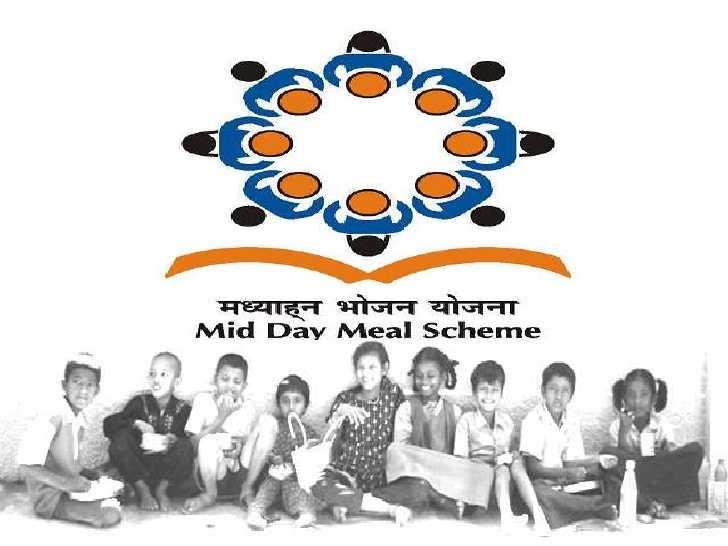
School Nutrition Gardens (SNG) :
A guideline on School Nutrition Gardens has been issued to all states and UTs. It is a place where herbs, fruits and vegetables are grown in the school premises for use in preparation of Mid-Day Meal.
Samagra Shiksha :
First time introduction of Library Grant and promotion of reading :
- The Central Government has launched the Integrated scheme for school education named as SamagraShikshaw.e.f 2018-19. Under the Samagra Shiksha, for the first time, Library grant at school level has been introduced.
- States/UTs have also been advised to set up Readers’ Club in schools in a phased manner with the help of National Centre for Children’s Literature (NCCL), is a wing of National Book Trust (NBT) to promote the habit of reading.
- In the year 2019-20, an outlay of Rs. 71164.78 lakh has been approved under library grant for 1009357 schools of different categories.
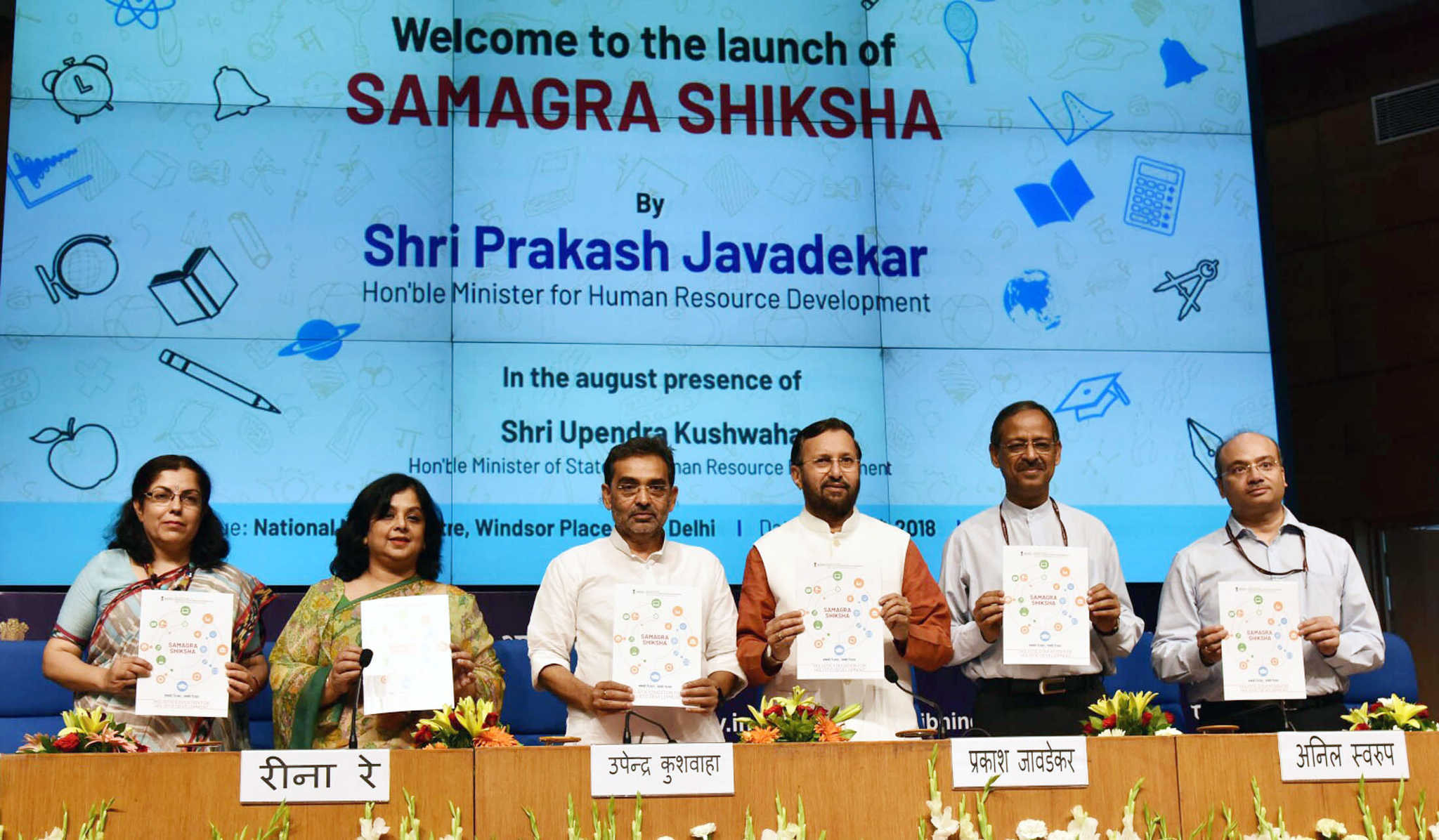
Sports and Physical Education :
- In the year 2019-20, an outlay of Rs. 800.40 crore has been approved under sports grant for 1002558 government schools of different categories.
- The fresh guidelines for sports and physical education are being prepared.
- NCERT organized Yoga Olympiad across the country at various levels, schools from states and UTs, Kendriya Vidyalaya Sangathan (KVS), Navodaya Vidyalaya Samiti (NVS) and Central Board of Secondary Education (CBSE) schools participated in the Yoga Olympiad, culminating in the National Yoga Olympiad on 18th to 20th June, 2019 at NCERT, New Delhi.
- Central Board of Secondary Education (CBSE) has made Health and Physical Education compulsory in all classes from I-XII. It has been advised to schools that Health and Physical Education includes three areas i.e. Health Education, Physical Education and Yoga and all three areas are essential to achieve holistic health (physical, mental, intellectual, emotional, social and spiritual).
Kasturba Gandhi BalikaVidyalaya :
- There are Four Types of KGBVs under Samagra Shiksha which are as under:
- Type-I: Existing KGBVs for classes VI to VIII.
- Type-II: KGBVs for classes VI to X.
- Type-III: KGBVs for classes VI to XII.
- Type-IV: Existing Girls’Hostel for IX to XII.
- Under Samagra Shiksha, total 5930 KGBVs have been sanctioned in the country out of which 4881 KGBVs are operational enrolling 6.18 lakh girls as on 30.09.2019.
- In the year 2019-20, Rs. 424750.05 lakh has been sanctioned for all KGBVs in the country.
Safety and Security of School Children :
- The Department of School Education and Literacy has issued a letter on 18.10.2019 to all States and UTs for display of ‘School Safety Pledge’ on a board or painted on wall at prominent places in all Schools. Under Samagra Shiksha, a provision of Rs. 500/- per school has been made in this regard. This Department is framing the guidelines for safety and security of school children. In this regard, consultations have been held with various stakeholders including students, teachers, Counsellors, Principals and School Managements.
Self Defence Training for Girls :
- Self defence training is being imparted to girls of class VI to XII belonging to Government Schools under Samagra Shiksha. Fund for this purpose is provided for three months @ Rs. 3000/- per school per month.
- Self defence training is also being given in Kasturba Gandhi BalikaVidyalayas.
- Under Samagra Shiksha, an amount of Rs. 15346.257 lakh has been estimated for 180160 Elementary Schools and Rs. 6656.358 lakh has been estimated for 81800 Secondary Schools for self defence training for the year 2019-20.
Equity :
- Bridging gender and social category gaps at all levels of school education is one of the major objectives of Samagra Shiksha. The Scheme attempts to reach out to girls, and children belonging to SC, ST, Minority communities and transgender.
- State specific interventions: Special state specific projects for varied interventions under equity are emphasized for enhancing access, retention and quality by promoting enrolment drives, retention and motivation camps, gender sensitization modules etc.
- State specific projects for varied interventions are sanctioned by the Project Approval Board as per the Annual Work Plans proposed by the State/UT concerned. A total of Rs. 21486.35 lakh at elementary level and Rs. 16083.22869 lakh at secondary level have been approved for various State specific projects for the year 2019-20.
National Means-cum-Merit Scholarship Scheme (NMMSS) :
- Scholarship to the 34493 students involving an amount of Rs. 40.71 crore has been sanctioned.
- Approx 1,33,460 successful application have been received on NSP.
National Scheme of Incentive to Girls for Secondary Education (NSIGSE) :
- Incentive amount of Rs. 8.56 crore to the 28547 beneficiaries girls have been sanctioned.
PARTICIPATION IN NATIONWIDE INITIATIVES :
1. Ek Bharat Shreshtha Bharat (EBSB) :
- HRD Ministry is the nodal ministry for this flagship campaign of Government of India.An illustrative list of suggested activities has been drawn up by the Department of School Education & Literacy. The Department has shared detailed guidelines including calendar of activities with all the States and UTs and concerned organizations for carrying out all the activities in all the schools.
- These activities include Ek Bharat Shreshtha Bharat Utsav, Talking Hour in morning assembly for news and information on partnering State, Student’s State Project Notebook, learning of alphabets and of folk songs, translation of proverbs and 100 sentences of partnering State, inclusion of few pages in course book in the language of partnering State, Know your Partnering State, Ek Bharat Shreshtha Bharat School Report, Themed Display Board and Wall Magazine, State Day celebration of partnering States, Cultural Competition on partnering State, Essay competition, Drama (on culture, history & tradition), Optional Classes on language of partnering State, Literary Fest, Pledge on Important National Campaigns in the language of partnering State and Ek Bharat Shreshtha Bharat annual report.
- The schools are to organize these activities as per the calendar shared by the Department or in coordination with partnering States/UTs, keeping in view the academic calendar. The schools are required to maintain a report on activities conducted under “Ek Bharat Shreshtha Bharat” in the form of quarterly and annual school report. The State/UTs have been requested to upload/send action taken report, videos and photographs of the activities at [email protected].
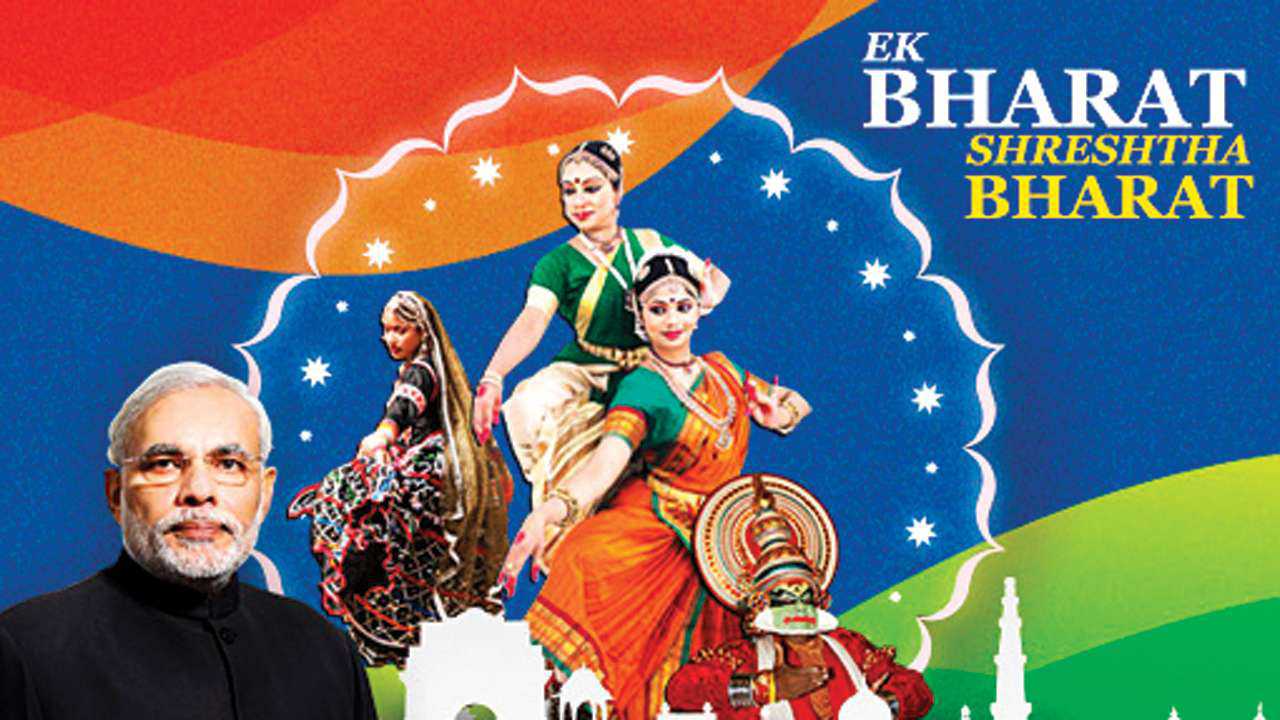
2. Fit India Campaign :
- The Fit India Movement was launched by the Prime Minister on 29th August, 2019 at Indira Gandhi Indoor Stadium, New Delhi.
- Department of School Education and Literacy in co-ordination with Department of Sports, organised the Fitness Pledge on 29th August, 2019 in States and UTs, KendriyaVidyalayaSangathan (KVS), NavodayaVidyalayas Samiti (NVS), Central Board of Secondary Education. Nearly, thirteen lakh schools and eleven crore students all over the country took the fitness pledge.
- Further, guidelines on Fit India Plogging Run prepared by Department of Sports were issued by Department of School Education and Literacy to States, UTs, KVS, NVS and CBSE to organize Fit India Plogging Run on 2nd October, 2019. Awareness on ‘No to Single Use Plastic’ and Collection of plastic garbage from homes, streets and open spaces was the main focus of the event.
- Department of Sports has prepared a ranking system of Fit India Schools to make Fit India a people’s movement. This department has written to all Principal Secretaries/Secretaries, School Education Department of States/UTs regarding “Fit India Movement-Fit India School” and to attain Fit India 3 or 5 Star.
- Following the recommendations of the reviewing Committee of Fit India Movement , the school education department has advised the States and UTs to organise daily fitness classes in all schools and all sports facilities available in States and UTs should be made available to the school students.
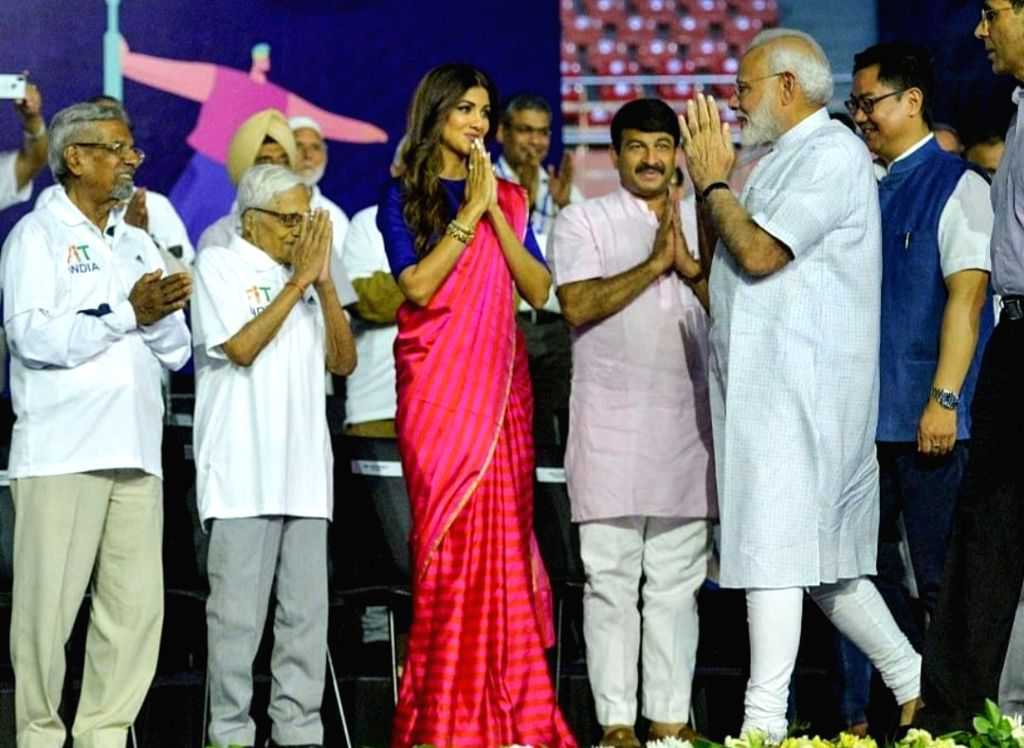
3. Constitution Day :
- Celebration of Constitution Day on 26th November, 2019 and yearlong activities are to be organised in all schools up to the 26th November, 2020. Accordingly, a calendar of activities was prepared and States and UTs were advised to carry out the following activities:
- Pledge taking ceremony to mark the occasion by reading of the Preamble to the constitution in a special assembly in the school
- Debates, essay competitions, cultural programs, quiz competitions, seminars and lectures etc. may be held at State, District and school levels.
- State level essay, debate and quiz competitions on fundamental duties and themes related to constitution may be organized across the State, the winners at State level may be suitably rewarded.
- Reading of Preamble and Fundamental Duties.
- Organizing Mock Parliament.
- Public messages on Fundamental Duties for dissemination among students and staff during the celebrations. Brochures, pamphlets and e-posters on Fundamental Duties may be prepared in Hindi, English and regional languages and distributed in schools among students.
- Effective utilization of Government/Organisation websites and MyGov platform to encourage citizen centric activities on the prescribed theme. Students may be encouraged to participate in online quiz/ Olympiad competitions being organized by MyGov.
- Invite eminent personalities from different walks of life to disseminate the message of Fundamental Duties.
- Talks by eminent lawyers and legal scholars on Fundamental Duties and related themes may be organised in schools.
About 9.63 lakh schools and 10.96 crore students participated in the reading of Preamble and other activities across the country on 26th November, 2019.
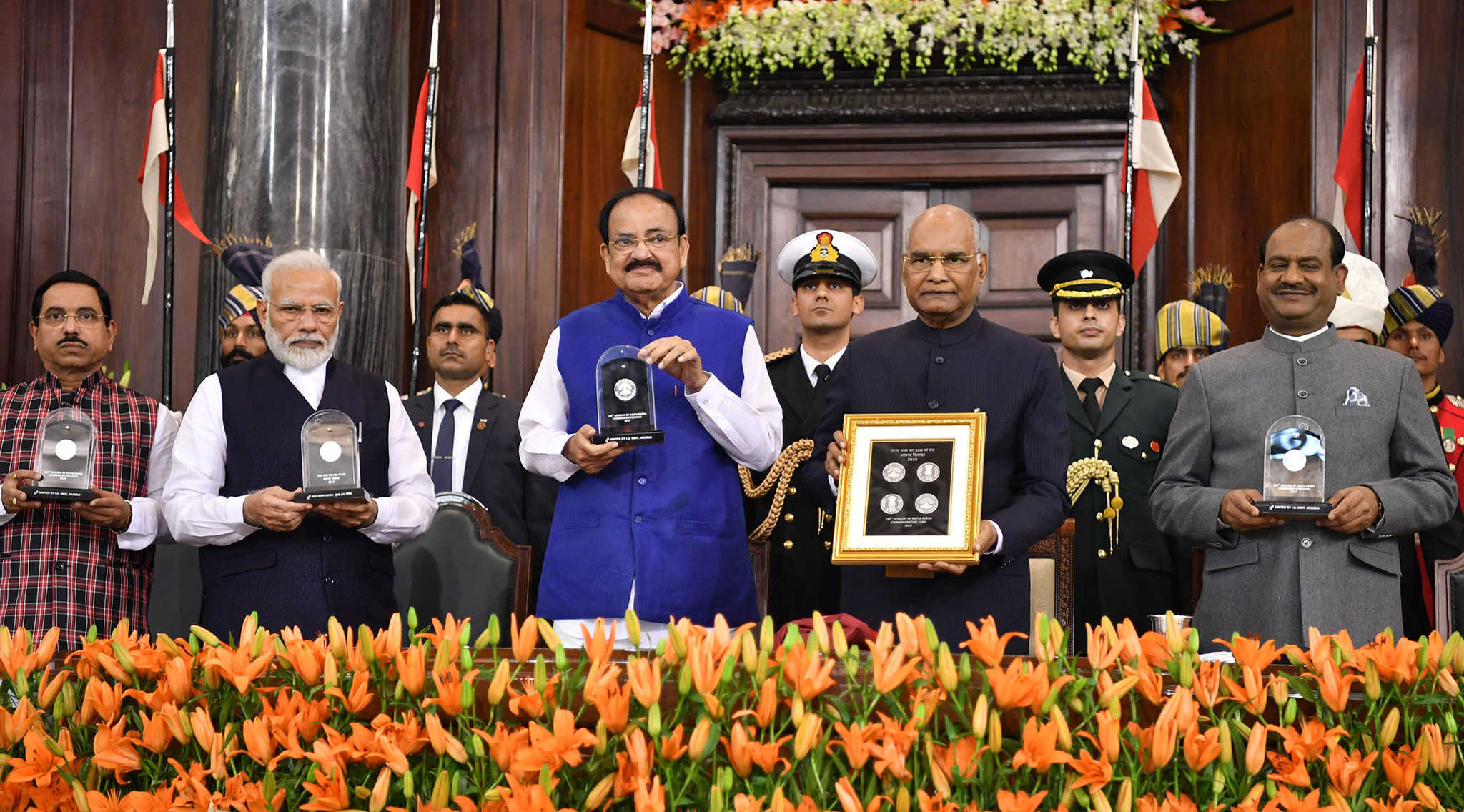
4. 150th Birth Anniversary of Mahatma Gandhi :
- 150th Birth Anniversary of Mahatma Gandhi is being commemorated for a period of two years from 2nd October, 2018 to 2nd October, 2020 throughout the nation as well as at international level. The Department of School Education & Literacy is conducting nationwide activities for the same. The following activities have been completed by Dept. of School Education & Literacy:
- CBSE organised Expression Series on Mahatma Gandhi from 19th August to 3rd September, 2019. Approximately 4.5 lakh students participated across the country. 4314 shortlisted entries were uploaded by schools on CBSE Expression Series App out of which 18 selected as best entries. The Expression Series was based on the life, vision and philosophy of the father of the nation. The series was meant to provide a creative outlet to children and provide them with a platform to express themselves on various themes. The winners of the series were felicitated by HRM on 1st October, 2019 in the programme organized to commemorate 150th Birth Anniversary of Mahatma Gandhi.
- A large National Level Function was organised on lst October, 2019 at Dr. Ambedkar International Centre (DAIC), New Delhi
- Swachh Bharat Diwas (Shramdan: Plastic Waste Collection) was organized on 2nd October 2019 and 6,70,33,153 students of 7,73,050 schools participated in Shramdaan for Plastic Waste Collection on 2nd October 2019.
- Intensive programmes and activities on Mahatma Gandhi were organized in schools during the week from 23rd September, 2019 to 2nd October, 2019.
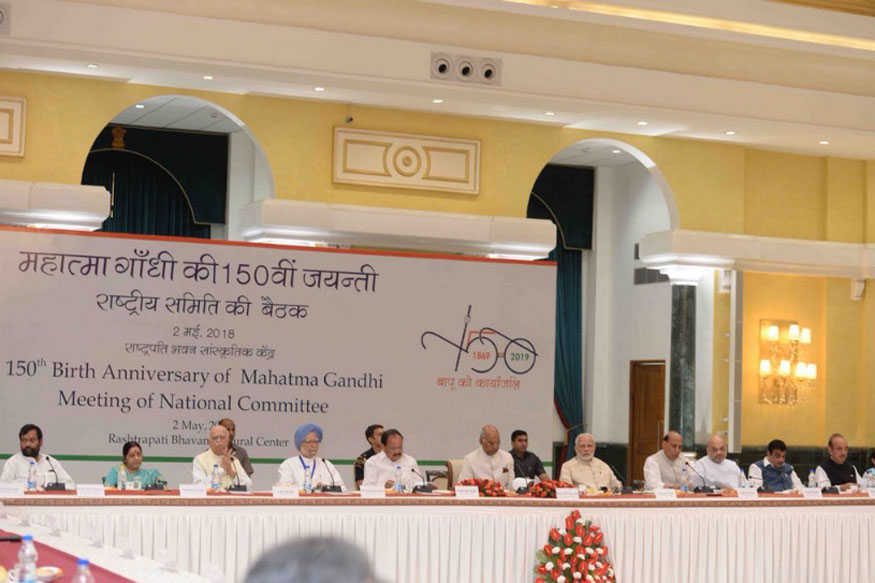
Kala Utsav :
- Kala Utsav is an initiative of the Department of School Education & Literacy to recognize the importance of aesthetics and artistic experiences for school students, which play a major role in creating awareness of India’s rich cultural heritage and its vibrant diversity. The National level Kala Utsav is scheduled to be held at Bhopal, Madhya Pradesh form 2nd -5th January, 2020. Competitions will be held in the four themes of Vocal Music, Instrumental Music, Dance and Painting at District and State levels and the winning teams thereafter will participate at the national level competition. The Students of Classes IX to XII of any Government, Government –aided and Private schools may participate in Kala Utsav. A total of 38 teams (36 State/UTs +KVS+NVS) are likely to participate at the National level.
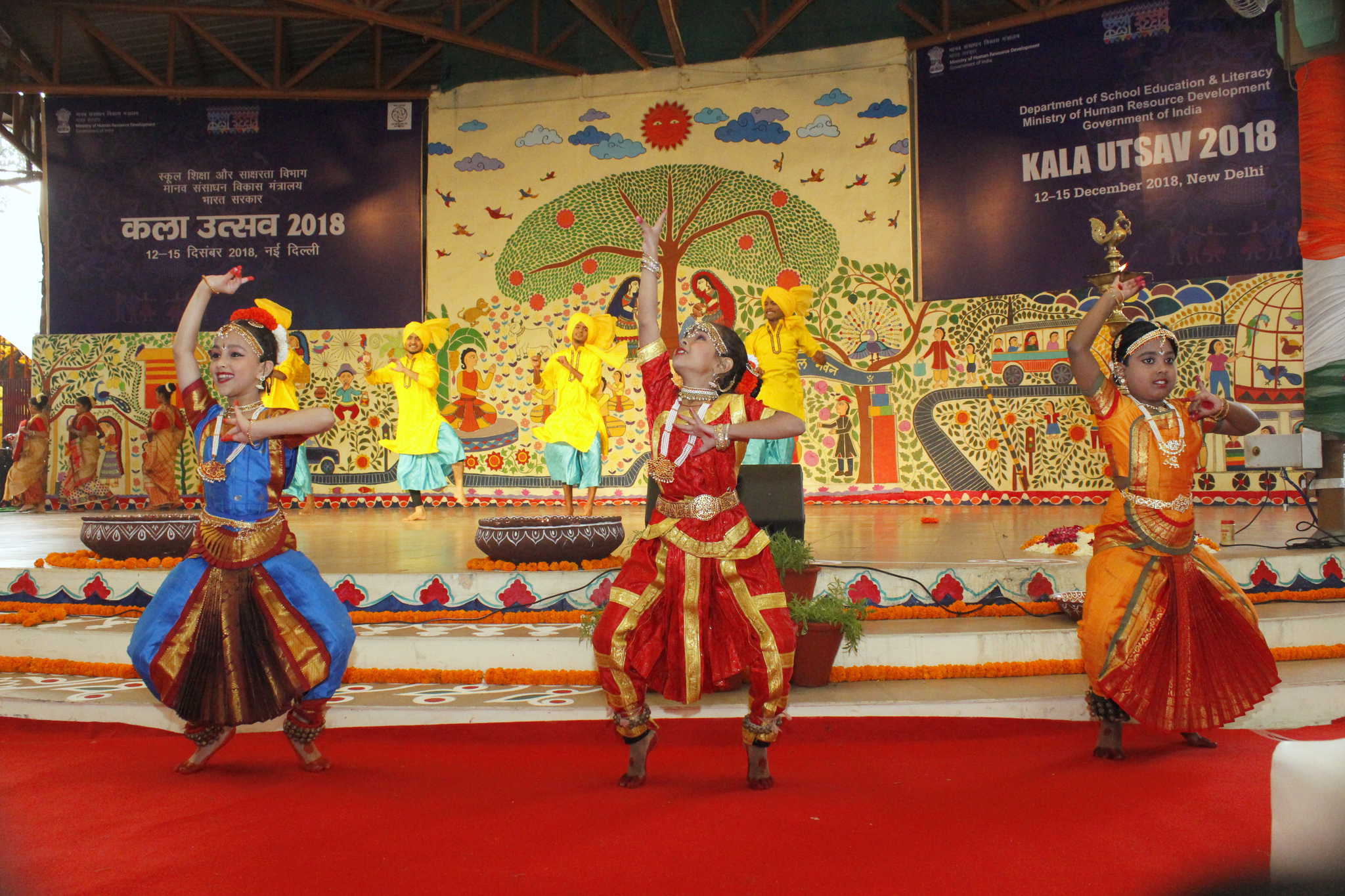
Scheme for Providing Quality Education in Madrasas (SPQEMU :
- Project Approval Meeting of the SPQEM was held on 16th September,2019 wherein Rs. 8788.00 lakh for General States and UTs with Legislature has been approved. Whereas an amount of Rs. 950.00 lakh and 2.00 lakh were approved for NER states and UTs without Legislature respectively.
- Till date, Rs. 5912.808 lakh has been released to States under SPQEM. File of Rs.806.10 lakh has been processed/under submission.
Infrastructure Development of Private Aided/Unaided Minority Institutes (IDMI) :
- Project Approval Meeting of the IDMI was held on 27th November, 2019 wherein Rs. 2000.00 lakh for General States and Rs. 250 lakh for NER States have been approved.
- An amount of Rs. 303.63 lakh under IDMI scheme has been processed to release.
Snapshot of Coverage of Children with Special Needs -CwSN (2019-20) :
- More than 20 lakh CWSN enrolled in schools or receiving home based education.
- Rs. 136375.31 lakh estimated for various interventions of Inclusive Education for CWSN for the year 2019-20.
- Braille textbooks are being provided to 40,311 children with visual impairment at elementary level (class I to VIII) with an estimated outlay of Rs. 123.25 lakh.
- Large print books are being provided to 91,254 children with low vision at elementary level (class I to VIII) with an estimated outlay ofRs.289.00 lakh.
- Outlay of Rs. 619.09 lakh has been estimated for in-service training of 26,817 special educators.
- 5.96 lakh girls with special needs receiving stipend through Direct Benefit Transfer (DBT).
- More than 2.32 lakh CWSN using aids and appliances through scheme/s like ADIP etc.
- Total outlay of Rs. 1911.05 lakh has been estimated for conducting 17,734 sports events and exposure visits thus promoting social inclusion.
- Approximately 64.24% of schools at elementary level and 58.28% at secondary level are equipped with ramps with handrails and approximately 19.59% of schools at elementary level and 24.40% at secondary level have disabled friendly toilets (DFT) to enhance retention of CWSN in regular schools.
- An outlay of Rs. 1995.93 lakh has been estimated for 58,392 assistive devices, equipmentsand teaching learning materials (TLM).
- Engagement of 28,285 resource persons and special educators have been estimated to cater to the diverse & unique needs of CWSN from elementary to higher secondary level.
Initiatives by autonomous organizations for CwSN :
- Books in Accessible Format on e-Pathshala Portal for CwSN has been developed by NCERT, the ePathshala mobile app supports Text to Speech to help children with visual impairment.
- Audio books have been developed by NCERT, in which textbooks are presented in audio form, to help the visually challenged learners
- NCERT has developed Tactile Map Books with 25 maps and diagrams, with Braille and English text to encourage collaborative learning.
- CBSE’s provision for CwSN: Exemptions/ Concessions Rules Applicable for Both Class X & XII Board Exam Facility of Scribe and compensatory time: Candidates with disabilities as defined in The Rights of Persons with Disabilities Act 2016 are permitted to use a Scribe or allowed Compensatory time etc.
CONSTRUCTION OF JNV BUILDINGS :
- As per 100 days action plan, newly constructed building of 10 JNVs i.e. Kanshiram Nagar(UP), Malkangiri-II (Odisha), Sitapur-II (UP), Dang (Gujarat), Navsari (Gujarat), Puri (Odisha), Palwal (Haryana), Bhandara (Maharashtra), Jhabua-II (MP), Ahemdabad (Gujarat) were inaugurated.
- As a part of 100 days agenda foundation laying done in respect of 10 JNVs and construction work begun viz. SefaiJala (Tripura), South Tripura (Tripura), South West Khasi Hills (Meghalaya), Jalpaiguri (W.B.) Kalaburgi-I (Karnataka) & Kolar (Karnataka) Jhabua (MP) &Mahisagar (Gujarat).
- · Construction of additional dormitory has been completed in JNV Srikakulam, JNV Vishakhapatnam, JNV Vijayanagaram, JNV Kodagu & JNV Mandya.
- · Infrastructure for implementation of Rooftop grid connected Solar power has been completed on 176 sites. Generation of power has also been started on 12 sites. On other JNVs, net metering is awaited.
RECRUITMENT :
- Process for engagement of 01 male and 01 female counsellor in all functional JNVs has been completed. Recruitment for filling up 2370 posts advertised on 9th July, 2019 is at advance stage of completion.
- Offers of appointment to 218 PGTs have been issued. Joining status is awaited.
It eliminates the prevailing manual system of service processes followed in the organization & to improve access to real-time data for decision support and to enhance efficiency and transparency of school operations, development of “ShaalaDarpan” project is has been developed with the help of C-DAC, Ministry of Electronics and Information Technology.
ACADEMIC EXCELLENCE of NVS Students :
ADMISSION IN IITS, NITS AND MEDICAL COLLEGES OF NVS STUDENTS : 2019
|
JEE |
NEET |
|||
|
Appeared in JEE Main |
11733 |
Appeared in NEET |
16156 |
|
|
Qualified in JEE Main |
4451 |
Qualified in NEET |
12654 |
|
|
Qualified in JEE Advanced -First list |
966 |
|||
TREE PLANTATION :
All field units of NVS have been instructed to implement “One Student One Tree Campaign”. It aims at involving school students in raising plant nurseries to bring them closer to natural environment, help them understand the natural processes of germination and feel the joy of watching saplings grow. Students are involved in activities right from sowing the seed to transplanting, watering, weeding etc. so that students can learn the process also. More than 2.40 lakhs saplings were planted by the of students of JNVs in 2019-20.
SHAALA DARPAN :
ShaalaDarpan portal of NVS has been launched on 06.11.2019 at National Museum Auditorium, New Delhi by Shri Sanjay Dhotre, Minister of State for HRD.
Digital initiatives :
Process of application for the Class VI examination has been made online leading to better access for the rural population to the application process. Faceless admission process has resulted in more transparency and least corruption.
- Process of transfer has been made online which has resulted in increased transparency and timely completion of the process.
- Recruitment process has been made online and faceless till appointment. The appointment letters are also downloaded by candidates using their login password.
Achievements-2019
- Inauguration of new constructed school buildings: 17 newly constructed school buildings of KendriyaVidyalayas were inaugurated .
- Foundation Stone laying of school buildings : Minister of HRD has laid the foundation stone of 7 school buildings of KendriyaVidyalayas.
- Opening of New KendriyaVidyalayas : During last 6 months 25 KendriyaVidyalayas have been opened.
- Filling up of vacancies:The details of posting of staff in the last 6 months in various KendriyaVidyalyaas / Regional Offices / KVS (Hqrs.) are as under :
|
S.No. |
Name of Post |
Pay level |
No. of offer of appointment issued |
|
|
PRT |
06 |
3000 |
|
|
TGT (English, Hindi, Maths, Science, Social Studies, Sanskrit) |
07 |
3473 |
|
|
Assistant Section Officer |
06 |
31 |
|
|
Senior Secretariat Assistant |
04 |
218 |
|
|
Junior Secretariat Assistant |
02 |
684 |
|
|
Steno. Grade II |
04 |
37 |
|
Total |
7443 |
||
Click here for more details on KVS achievements.
CENTRAL BOARD OF SECONDARY EDUCATION (CBSE)
Achievement-2019
CBSE has taken up several initiatives like formation of Hubs of Learning programme, training school teaches, process of recruitment of teachers, a new Vidya-Daanprogramme, preparation of students for PISA 2021, celebration of 150 years of Mahatma Gandhi, AryabhatGanit Challenge , handbooks on Artificial Intelligence for school children, and participation in national Campaigns like Fit India, Swachchtha, EBSB among others.
Click here for details of activities of CBSE.
NATIONAL COUNCIL FOR TEACHER EDUCATION :
Integrated Teacher Education Programme (ITEP) :
NCTE has invited applications form the institutions seeking recognition for 4-year Integrated Teacher Education Programme (ITEP). The institutions have submitted online applications which will be processed as per the provisions stipulated in the relevant Regulations. Applications were invited between 03.06.2019 and 31.07.2019.
Launching of online Performance Appraisal Report system (PAR) :
One of the conditions of recognition by NCTE is to direct the filing of a Performance Appraisal Report annually, which includes annual statement of accounts duly audited by a Chartered Accountant
The Online Performance Appraisal Report (PAR) system was formally launched on 23rd September 2019 and all recognized TEIs are required to fill up data on various regulatory parameters.
Launching of Online Teacher-Pupil Registration Management System (OTPRMS) :
Some prospective employers prior to employing a person as a teacher require verification of recognition status from NCTE regarding degree/diploma/certificate in teacher education. In this regard, the NCTE has launched Online Teacher-Pupil Registration Management System (OTPRMS) to facilitate candidates who have passed out of teacher education programmes from NCTE recognized institution (s). This programme was launched on 26.07.2019.
Silver Jubilee Celebrations :
The NCTE in its Silver Jubilee year organized an International Conference with the theme “Journey of Teacher Education: Local to Global on 17th and 18th August, 2019. The Conference highlighted the achievements of the Indian education system and facilitated dissemination of quality global practices in teacher education.
The NCTE intends to engage its resources towards launching “Project Lighthouse” by identifying 700 institutions, approximately one in each district of the country in the first phase. The partner Teacher Education Institutions (TEIs) will be selected by NCTE through a transparent procedure and they shall be academically and administratively supported and mentored for running an emblematic 2-year B.Ed. programme from the academic session 2020-21 onwards. This programme is expected to prepare 70,000 exemplar teachers in the year 2020-22. The selection of the 700 TEIs shall be done for 5 consecutive years after which 3,500 model TEIs will be capacitated to prepare a total of 3,50,000 quality teachers trained at international levels of competence. The TEIs so selected will be supported with several specific interventions like a centralized entrance examination for admission of students, a revised and up-to-date curriculum, capacity building of the teacher educators, etc. It is also envisioned to arrange for international placement of some selected student-teachers of these TEIs.
- Instituting “Best Teacher Educator Award” to be given to 20 exemplary teacher-educators every year.
The NCTE has initiated a programme for awarding 20 meritorious teacher educators every year. The first instalment of awards will be given in 2020.
Education
AI to Become a Core Subject from Class 3: India’s Big Leap Toward a Future-Ready Generation

In a landmark move to make India’s school system future-ready, the Department of School Education & Literacy (DoSE&L), Ministry of Education, has announced that Artificial Intelligence (AI) and Computational Thinking (CT) will be introduced as part of the school curriculum from Class 3 onwards, beginning in the academic year 2026–27.
The initiative marks a major step in preparing students for an AI-driven world, ensuring early exposure to technological literacy, ethics, and problem-solving. The curriculum, currently being developed through a consultative process with CBSE, NCERT, KVS, NVS, and States/UTs, will fall under the National Curriculum Framework for School Education (NCF-SE) 2023, in alignment with the National Education Policy (NEP) 2020.
A stakeholder consultation held on 29th October 2025 brought together education leaders, including Prof. Karthik Raman from IIT Madras, who heads the CBSE expert committee responsible for shaping the AI & CT curriculum. The focus is on designing a meaningful, inclusive framework that integrates AI not as an advanced elective but as a foundational skill — comparable to literacy and numeracy in importance.
Shri Sanjay Kumar, Secretary, DoSE&L, emphasised that AI education should be viewed as a universal skill closely linked to real-world applications. “Every child’s distinct potential is our priority. Policymakers must define minimum thresholds and evolve them with changing needs,” he said. He also stressed on teacher training as the backbone of successful implementation, with modules under NISHTHA, and resource materials being prepared by NCERT and CBSE.
The Ministry plans to release AI handbooks and digital resources by December 2025, followed by a grade-specific rollout supported by video-based learning materials and structured training.
By embedding AI education from the foundational years, India aims to nurture a generation that understands, creates, and applies technology ethically — transforming the vision of AI for Public Good into everyday classroom reality.
Education
Dharav Utsav to Celebrate Rajasthan’s Cultural Heritage and Local Talent

Education
Beyond the Syllabus: School Teachers’ Insights on Project-Based Learning

How classroom experiences are being reshaped through projects, inquiry, and authentic learning
As the classroom grows beyond the boundaries of textbooks and blackboards, so too does the role of the teacher, and the very meaning of learning. Project-Based Learning (PBL), once considered a niche innovation, is increasingly being embraced by educators across schools in India. But what happens when PBL moves from theory to practice?
To answer this, we turned to the people at the heart of the learning experience: teachers.
In conversations with educators from diverse school contexts, one theme was clear: PBL is not just a teaching strategy; it’s a transformation in how students learn, engage, and grow.
From Worksheets to Real-World Work: How PBL Differs from Traditional Homework
One of the clearest contrasts teachers observed was how PBL moves learning from repetition to relevance. Traditional homework often reinforces information through rote exercises. PBL, by contrast, asks students to apply their knowledge to solve problems, create products, or investigate issues that matter to them.
One teacher shared how using PBL to raise student awareness about water pollution was a hit in the class. Instead of just assigning problems, the students were made to create awareness posters, conduct surveys in their neighbourhood, and suggest solutions through group presentations. The teacher also noted how the students took the lead, and had an ownership over this project that they usually don’t showcase.
The shift from repetition to application fosters deeper engagement. Several teachers noted that students who previously struggled to stay motivated with homework showed renewed interest when asked to take on real-world challenges.
Changing Roles: Teachers as Facilitators, Not Just Instructors
Project-Based Learning also changes the role of the teacher, who went from being the sole source of knowledge to a guide who supports inquiry and exploration.
One common change teachers noticed was on how they had to let go of control in the classroom. Naturally, the students now had to work on projects on their own, and could only come to the teacher for guidance and help. The teachers noted that they helped their students ask the right questions, find credible sources, and evaluate their work, instead of completely placing the burden of learning on the teacher themselves.
This change isn’t always easy. It requires a shift in mindset and in many cases, rethinking how time is used in class. But most teachers agree: the shift is worth it. PBL has encouraged interdisciplinary approaches, made space for collaborative learning, and created more meaningful student-teacher interactions.
Unlocking Student Potential: What PBL Offers Beyond Academics
Academic performance remains important, but a lot of teachers repeatedly pointed out that PBL nurtures a broader set of skills, like critical thinking, collaboration, communication, and creativity. One teacher particularly noted on how their quietest students became ‘leaders’, and became outspoken when it came to presenting their ideas and projects. While not directly, PBL helped these students find their voices, and find confidence in their effort and abilities.
Students learn to manage time, negotiate roles, and solve problems, skills that aren’t always reflected in exam scores but are vital for life beyond school. For many teachers, the most rewarding aspect of PBL was watching students take initiative, work through failure, and reflect on their learning.
Widening the Circle: Strategies for Scaling PBL in More Classrooms
While the benefits are clear, teachers acknowledged that implementing PBL at a large scale comes with challenges, like limited time, rigid curriculum structures, and unfamiliarity among teachers.
They offered a few practical suggestions for schools and educators considering wider adoption:
- Start Small and Build Confidence: Starting with short projects aligned to the unit you are already teaching introduces PBL in an easy manner. This way, teachers do not have to worry about overhauling their curriculum, or for making huge changes to their current teaching methods.
- Encourage Collaboration Among Teachers: Joint planning across subjects makes projects richer and more integrated. This also promotes interdisciplinary skills among students, and allows them to craft solutions using different subjects and skillsets.
- Make Time for Reflection: Embedding opportunities for students to present, critique, and reflect helps solidify learning. By reflecting on their projects and mistakes, they can understand how they can improve their approach to PBL.
- Support Professional Development: Teachers emphasized the need for ongoing training, not just one-off workshops but long-term spaces for peer sharing and mentorship. This continuous development would cement and solidify the methods and outcomes that will maximise using PBL for student benefits
Looking Ahead: Redefining Success in Education
PBL challenges traditional ideas of what learning looks like. It pushes students to move beyond memorization, and it challenges teachers to rethink their methods. But more than anything, it opens up the classroom to ideas, to communities, and to possibilities. No longer are students just preparing for exams, but also for the complex world outside school.
As educators continue to navigate the changing landscape of education, the insights from teachers point us toward a hopeful future, where learning is meaningful, relevant, and rooted in real-world experience.
This article is authored by Mrs. Padmashini M Patro, Principal, Air Force School Bamrauli
Education
Over 1 Lakh Single-Teacher Schools Educate 33 Lakh Students Across India: MoE Data

Education
Over 3 Lakh Schools Join Hands for India’s Largest-Ever Innovation Challenge: Viksit Bharat Buildathon 2025

In a historic moment for Indian education, more than 3 lakh schools across the country came together to participate in the Viksit Bharat Buildathon (VBB) 2025, the largest live school innovation challenge ever organised in India. The nationwide event was inaugurated in New Delhi by Union Education Minister Dharmendra Pradhan, marking a significant milestone in the Government’s efforts to embed creativity, innovation, and problem-solving into the school ecosystem.
The Viksit Bharat Buildathon, organised by the Department of School Education & Literacy (DoSEL) in collaboration with Atal Innovation Mission (AIM), NITI Aayog, and AICTE, saw over one crore students from Classes 6 to 12 working simultaneously during a 120-minute live innovation session. Students teamed up in groups of three to five to design prototypes and propose solutions under four themes — Atmanirbhar Bharat, Swadeshi, Vocal for Local, and Samriddhi.
While inaugurating the event, Minister Pradhan interacted virtually with students of PM SHRI Government High School, Khorda, Odisha, and later visited Delhi Public School, Mathura Road, and Kendriya Vidyalaya No. 2, Delhi Cantt. Commending students for their creativity, he said, “The vision of Viksit Bharat will be realised through the innovative spirit of our young learners. These ideas will not only address domestic challenges but also create global models for change.”
The event drew widespread participation, with Uttar Pradesh leading the numbers (78,206 schools), followed by Maharashtra (41,198), Gujarat (20,017), and Madhya Pradesh (18,129). Other states like Tamil Nadu (16,370), Bihar (15,732), Odisha (12,344), and Haryana (11,567) also recorded impressive engagement, showing the growing momentum for grassroots innovation across regions. Even smaller territories like Ladakh (358), Puducherry (149), and Andaman & Nicobar Islands (171) participated actively, reflecting the nationwide reach of the initiative.
According to Sanjay Kumar, Secretary, DoSEL, this unprecedented participation signals a transformation in how Indian students approach learning. “This one-of-a-kind movement strengthens innovative thinking and enhances the problem-solving capabilities of students across India,” he said. Deepak Bagla, Mission Director of AIM, called the initiative a “mass movement connecting schools in remote villages with those in metropolitan cities through innovation.”
A New Chapter for Indian Education
The Viksit Bharat Buildathon signifies more than just a hackathon — it reflects a systemic shift in Indian education towards experiential and innovation-led learning. As schools across the country engage in design thinking, tinkering, and collaboration, students are being equipped not just with knowledge, but with the mindset and skills needed to build a self-reliant India.
By nurturing creativity from an early age and fostering partnerships between schools, government bodies, and industry, the Buildathon is shaping a generation ready to contribute to the vision of Viksit Bharat 2047 — a developed, empowered, and innovation-driven India.
Education
17-year-old Innovator Designs Learning Tools for the Visually Impaired

At just 17, Singapore-based student Ameya Meattle is proving that age is no barrier to impact. What began as a small idea to make education more accessible has evolved into a mission that is transforming how visually impaired learners experience learning and skill development.
Ameya founded Earth First at the age of 14 — a social enterprise that helps visually impaired individuals “earn and learn” by creating sustainable, eco-friendly products. Working with eight NGOs across India and Singapore, the initiative has trained more than 100 visually impaired students and launched over 23 sustainable product lines, from tote bags and jute placemats to macramé planters. Each design is adapted to provide hands-on learning opportunities and help trainees gain confidence in both craft and enterprise.
Beyond social entrepreneurship, Ameya has focused deeply on education and technology. He led a Python programming course for 50 visually impaired students, designing custom training modules that made coding accessible through screen readers and tactile tools. By introducing technology as a viable career pathway, Ameya hopes to help students move from manual tasks to high-skill, digital opportunities.
His work also extends into assistive technology research. Under the mentorship of Dr. Pawan Sinha at MIT, Ameya developed a VR-based diagnostic game to assess visual acuity in children — turning the process into an interactive experience rather than a clinical test. The tool is being piloted at MIT’s Sinha Lab and with Project Prakash in India, helping doctors evaluate and track visual development before and after eye surgeries.
In addition, during his internship at the Assistech Lab at IIT Delhi, Ameya worked on designing tactile STEM teaching aids, such as accessible periodic tables and coding tutorials for visually impaired learners. His goal, he says, is not just to innovate but to make scientific learning inclusive and joyful for all.
Ameya’s work highlights how education, empathy, and innovation can intersect to create a more equitable future — one where technology serves not just progress, but people.
Education
Ministry of Education Urges Schools to Adopt UPI for Digital Fee Payments, Promoting Ease of Schooling
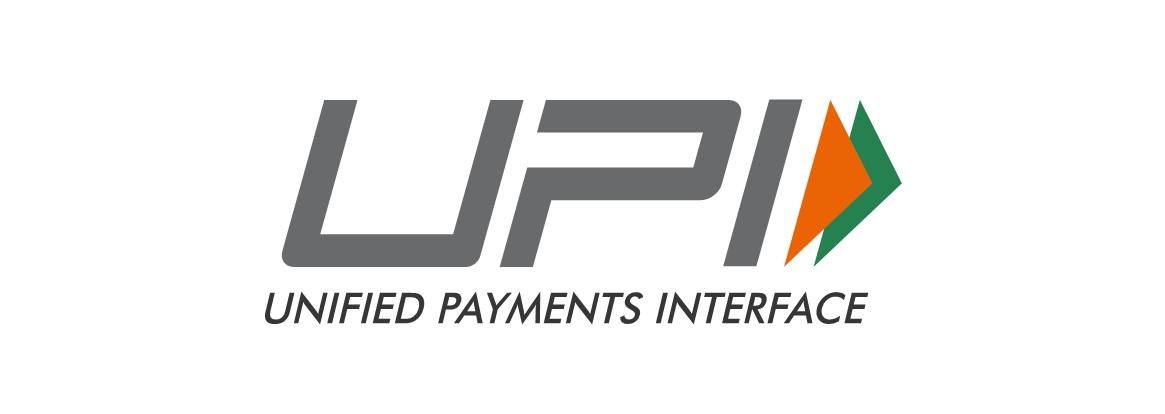
Education
Supreme Court Calls for Early Sex Education in Schools: “Not from Class IX, But from a Younger Age”

In a landmark observation, the Supreme Court of India has emphasised the urgent need to introduce sex education at a younger age, rather than waiting until Class IX as is the current norm. The apex court stated that children should be informed and sensitised about the physical and emotional changes that accompany puberty — and taught the necessary care and caution that come with it.
The observation came from a Bench comprising Justice Sanjay Kumar and Justice Alok Aradhe, which noted that the absence of early sex education leaves children vulnerable to misinformation and misunderstanding during their formative years.
“Sex education should be provided to children from a younger age and not Class IX onwards. It is for the authorities concerned to apply their mind and take corrective measures so that children are informed of the changes that happen after puberty,” the court stated.
The Bench made the remarks while hearing an appeal filed by a 15-year-old boy, who had been denied bail by the Allahabad High Court in a case under Sections 376 and 506 of the Indian Penal Code (IPC) and Section 6 of the Protection of Children from Sexual Offences (POCSO) Act. Recognising that the accused was himself a minor, the Supreme Court had earlier granted him bail in September 2025.
In the same case, the Court had directed the Government of Uttar Pradesh to submit an affidavit explaining how sex education is currently implemented in schools. The state responded that sex education is introduced only in Classes IX to XII, following NCERT guidelines. However, the Bench expressed concern over this delayed introduction and urged policymakers to revisit the framework to ensure children receive age-appropriate education much earlier.
The Court set aside the High Court’s order and made the juvenile’s bail permanent until the completion of the trial. More importantly, its remarks have reignited the national debate on the need for comprehensive sexuality education in India, which many experts argue is crucial to preventing abuse, reducing stigma, and promoting healthy development among adolescents.
Education experts have long maintained that early, factual, and inclusive discussions about puberty, consent, and emotional health must begin before adolescence — ideally in primary school — to prepare children for real-world experiences and relationships. The Supreme Court’s observation is expected to prompt renewed policy discussions on revising the sex education curriculum nationwide.
Education
Delhi Government Launches Online First Aid Training Programme for Teachers
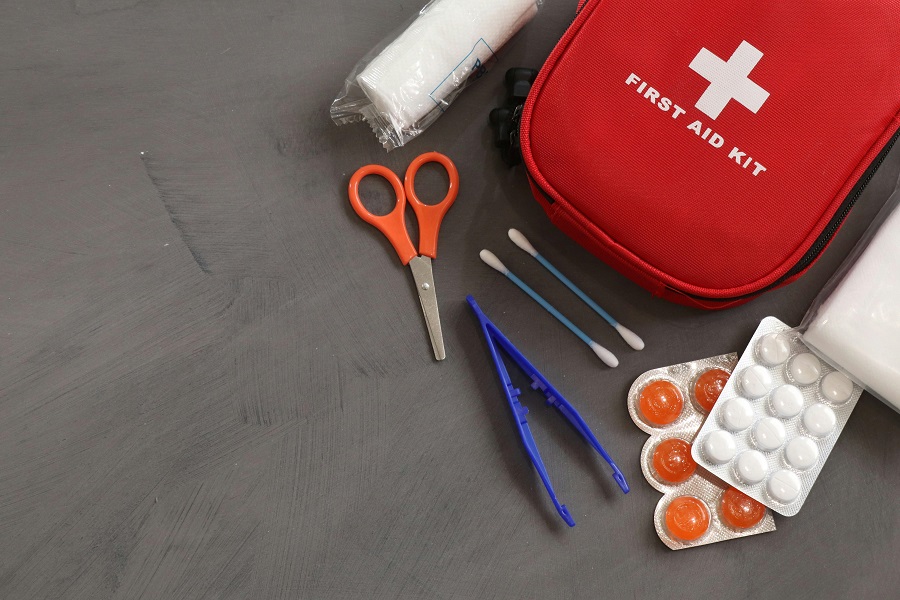
The Delhi government has introduced a new online training programme designed to equip teachers with essential first aid skills to respond effectively during health emergencies in schools.
According to a circular issued by the State Council of Educational Research and Training (SCERT), the course — titled “First Aid – To Improve Human Reaction in Challenging Health Situations” — will be conducted under the Massive Open Online Course (MOOC) format. The training is mandatory for all teachers and will run from October 9 to October 19, 2025.
The initiative aims to increase awareness about the importance of readiness in medical emergencies and the role of first aid in saving lives. It will also educate teachers on maintaining functional first aid kits in classrooms and demonstrate practical methods for administering care in real-life situations.
Teachers must achieve at least 70 per cent in each assessment to complete the course successfully. Upon completion, participants will receive certificates, which can be downloaded directly from the platform.
By introducing this online training, the Delhi government seeks to build a culture of preparedness and safety across schools. With thousands of teachers gaining basic emergency response skills, the initiative is expected to significantly improve the ability of schools to manage sudden health crises and ensure student well-being.
Education
Atal Innovation Mission and IFCCI Join Hands to Scale Up Atal Tinkering Labs Across India
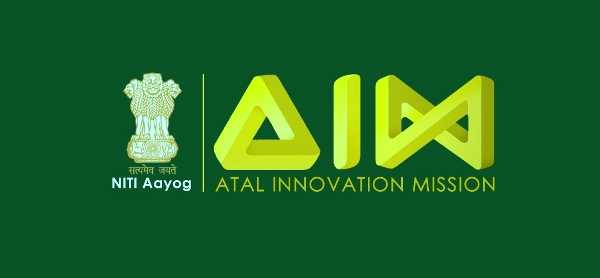
The Atal Innovation Mission (AIM), NITI Aayog, and the Indo-French Chamber of Commerce & Industry (IFCCI) have signed a Statement of Intent (SoI) to strengthen and expand the Atal Tinkering Labs (ATLs) network across India. The agreement, formalised at the French Embassy in New Delhi during IFCCI’s 3rd CSR Connect Day 2025, marks a significant step in fostering STEM education, digital literacy, and innovation among school students.
The event was attended by H.E. Thierry Mathou, Ambassador of France to India, who praised the partnership for deepening Indo-French collaboration in social development. He highlighted that 2026 will mark the India–France Year of Innovation, encouraging businesses from both nations to invest in sustainable, community-driven impact initiatives through Corporate Social Responsibility (CSR).
Through this partnership, IFCCI and AIM aim to mobilise CSR contributions from French and Indian companies to improve infrastructure, enhance hands-on learning experiences, and bridge the gap between industry and education. IFCCI, which has already executed over 86 CSR projects benefiting more than 15,000 people across India, will leverage its network to support ATL expansion, particularly in underserved schools.
Mission Director of AIM, Deepak Bagla, noted that over 11 million students have already benefitted from the ATL initiative, which he called “one of the world’s largest grassroots innovation programs.” He said, “From the northernmost village school to the southernmost, innovation is thriving everywhere. The real story lies not in the scale, but in the creativity of the ideas students are building.”
A Shared Vision for Inclusive Innovation
The collaboration aims to make innovation accessible to all students by promoting digital tools, teacher training, and student challenges that inspire curiosity and problem-solving. IFCCI Director General Payal S. Kanwar added, “This partnership is a step forward in empowering youth with 21st-century skills. We aim to bridge the gap between industry and education and make innovation accessible to every student, especially in underserved regions.”
However, as the Atal Tinkering Labs expand, addressing operational challenges remains crucial. Reports by UNICEF and The New Indian Express underscore that access to digital tools alone cannot guarantee innovation without inclusive design, mentorship, and ethical technology use. UNICEF’s SPARK Labs model, which links creativity with social change, offers a useful reference — encouraging schools to blend innovation with empathy, inclusion, and purpose.
Challenges and Areas for Improvement
Despite the ATL program’s remarkable reach, a 2023 assessment highlighted several gaps. Nearly 58% of ATL teachers lack a STEM background or structured training, resulting in inconsistent mentorship. In many schools, ATL sessions are not integrated into the timetable, limiting daily engagement. Moreover, less than 10% of schools report active student participation due to limited guidance and parental scepticism about its academic value.
Operational hurdles like irregular funding, defective equipment, and poor monitoring systems have also hindered consistent performance. Some schools struggle to maintain labs once initial grants are exhausted, while others lack a mechanism to track outcomes effectively.
The Way Forward
For the AIM–IFCCI partnership to achieve its full potential, a few key steps can strengthen impact:
-
Teacher Capacity Building: Introduce regular certification-based training programs, preferably in collaboration with universities and tech firms.
-
Curriculum Integration: Embed ATL projects within school timetables and link them with existing subjects like science and mathematics.
-
Mentorship Networks: Connect schools with local innovators, start-ups, and CSR professionals for year-round engagement.
-
Monitoring Systems: Deploy digital dashboards to track participation, tool usage, and project outcomes for better transparency.
-
Community Awareness: Conduct parent and community outreach sessions to showcase how tinkering enhances academic learning and future employability.
If executed effectively, this Indo-French collaboration can redefine India’s innovation ecosystem by turning every school into a space where curiosity meets creation. The challenge now lies in ensuring that every student, regardless of background, not only has access to a lab but also the guidance and confidence to build something meaningful within it.
-

 Education3 months ago
Education3 months agoBeyond the Syllabus: School Teachers’ Insights on Project-Based Learning
-

 Education3 months ago
Education3 months agoDharav Utsav to Celebrate Rajasthan’s Cultural Heritage and Local Talent
-

 Education3 months ago
Education3 months ago17-year-old Innovator Designs Learning Tools for the Visually Impaired
-

 Education3 months ago
Education3 months agoOver 3 Lakh Schools Join Hands for India’s Largest-Ever Innovation Challenge: Viksit Bharat Buildathon 2025
-

 Education3 months ago
Education3 months agoAI to Become a Core Subject from Class 3: India’s Big Leap Toward a Future-Ready Generation
-

 Education3 months ago
Education3 months agoOver 1 Lakh Single-Teacher Schools Educate 33 Lakh Students Across India: MoE Data
-

 Education3 months ago
Education3 months agoHow to Build Better Parent-Teacher Communication
-
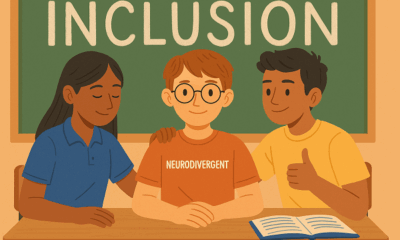
 Education3 months ago
Education3 months agoEmpowering Young People to Champion Neuro-Inclusion
-
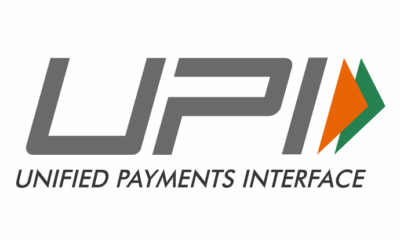
 Education3 months ago
Education3 months agoMinistry of Education Urges Schools to Adopt UPI for Digital Fee Payments, Promoting Ease of Schooling
-

 Inspiration1 month ago
Inspiration1 month agoUmeed: A Ray of Hope for Better Tomorrow







































